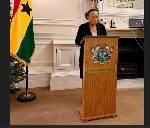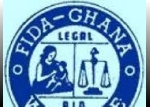TOR financial crisis: CEMSE propose solutions for revival
 Benjamin Nsiah
Benjamin Nsiah
The Tema Oil Refinery (TOR) is facing severe financial distress, with its total equity plummeting from GH¢2.4 billion in 2019 to GH¢5.7 billion in 2023, representing a 135% decline.
This worsening financial situation has raised concerns about the sustainability of the refinery, with industry experts proposing urgent solutions to restore its viability.
A statement by the Centre for Environmental Management and Sustainable Energy (CTHE EMSE ) dated January 23, 2025 said TOR, originally established as GHAIP, began as a tolling refinery, processing crude oil for multinational companies.
Over the years, its operations expanded to include importation, storage, and distribution of petroleum products, as well as laboratory services.
However, despite these developments, the company has been recording significant financial losses.
In 2022 alone, TOR reported a net loss of GH¢1.6 billion, followed by GH¢1.3 billion in 2023.
On average, the company has recorded annual losses of GH¢793 million since 2019, with negative returns on assets, signalling poor financial management.
Adding to its woes is overstaffing, with over 750 employees, despite its current operational capacity requiring only 150 workers.
This redundancy has further drained the company’s already limited resources, making urgent reforms necessary.
CEMSE have suggested three key strategies to revive TOR and restore financial stability:
Filing for Bankruptcy
The government could consider filing for bankruptcy to facilitate a court-supervised restructuring of TOR’s debts and operations. This would allow for a temporary halt in operations, enabling the company to reorganize and rationalize its workforce by cutting down on redundant staff.Restructuring and Liquidity Injection
The government could commit to a liquidity injection to address TOR’s financial liabilities. Due to liquidity constraints, the government may negotiate debt extensions or explore debt-for-equity swaps, allowing creditors to take partial ownership and improve asset management.Exploring Concession Agreements
The government could adopt a concession model, allowing private investors to operate and manage TOR for a set period while maintaining state ownership. This would leverage private sector investment and expertise, ensuring technical and managerial efficiency. To succeed, such agreements must be carefully structured and monitored to balance public and private interests effectively.
Source: Classfmonline.com/Cecil Mensah
Trending News

PAJAG lauds gov't, rCOMSDEP for issuing first responsible cooperative mining permit
01:46
GHS urges Ghanaians to prioritise road safety during Christmas celebration
15:49
Ghana High Commission hosts health workshop to promote staff wellbeing
15:48
E/R: Police restore calm at Boadua
17:54
Sam George reveals past law enforcement leaks enabled cyberfraud in Ghana
16:15
Ghana receives insurance payout for drought-affected farmers
12:36
Rev. Wengam and wife conclude 2025 Apostolic visit in Upper West Region
15:05
Domestic Violence Laws exist, but funding gaps continue to fail survivors — FIDA
15:31
Unsung officers credited with decline in 'landguardism' in Greater Accra
18:15
No case to answer: Justice Kulendi petition thrown out
14:59



